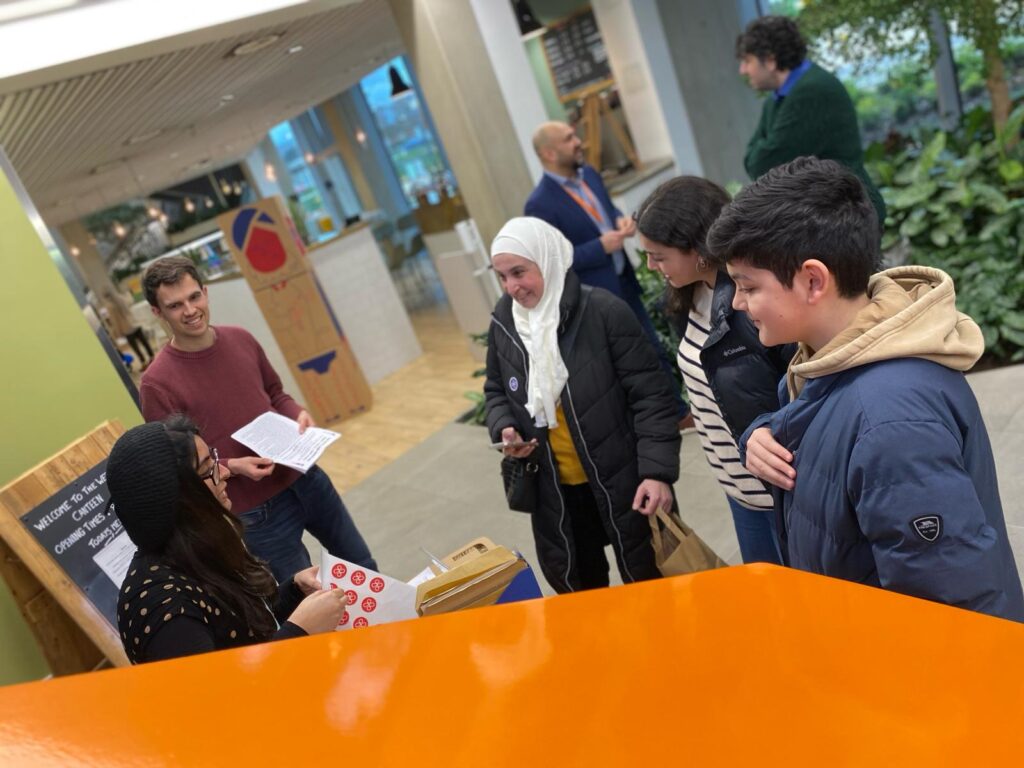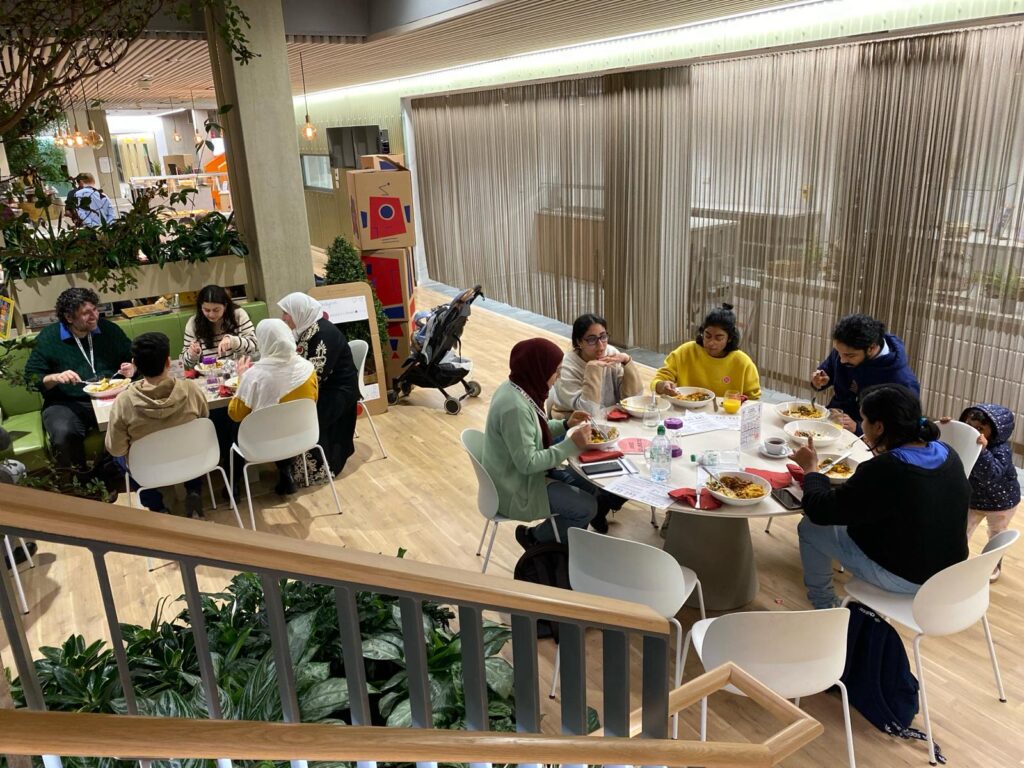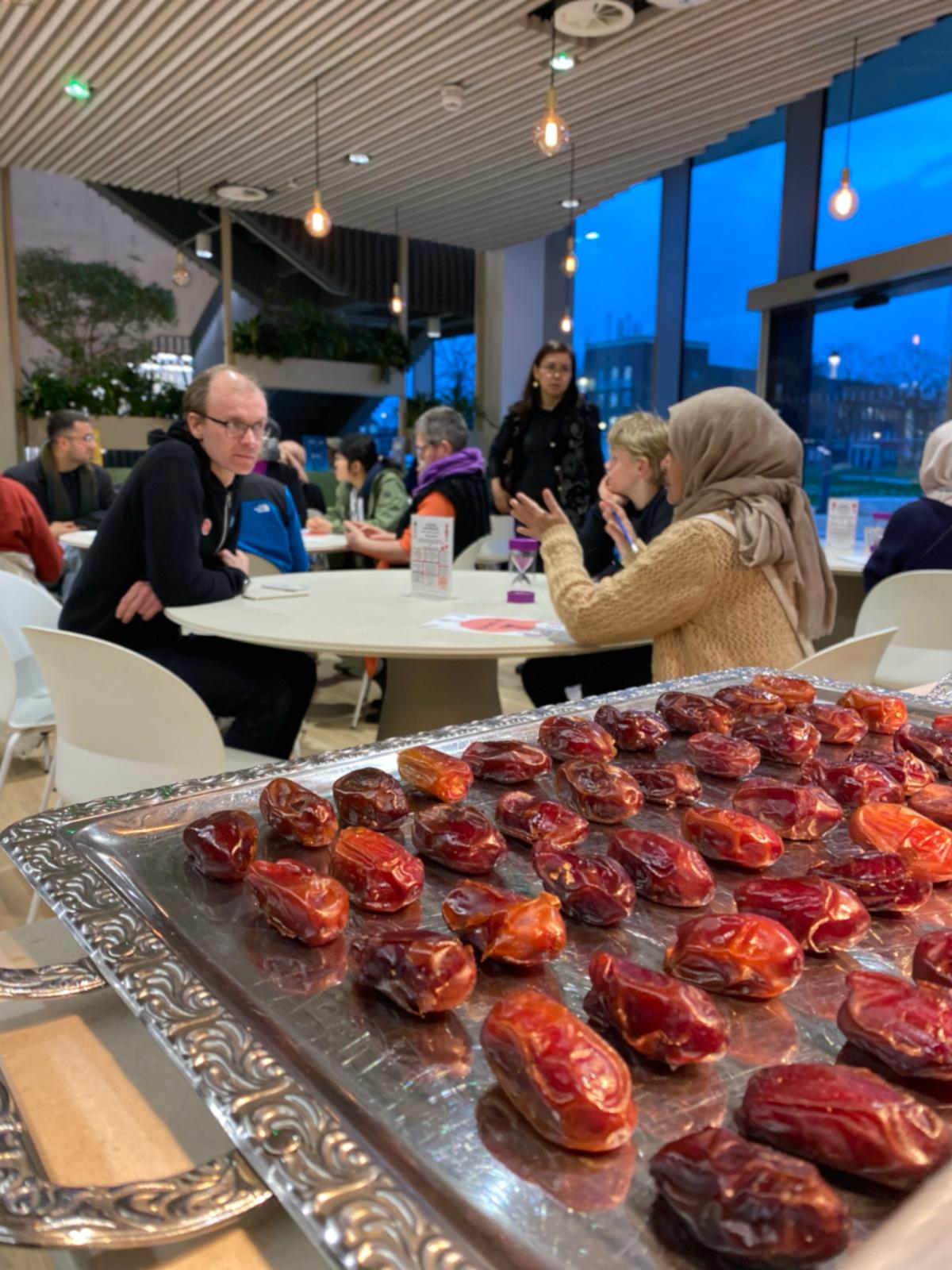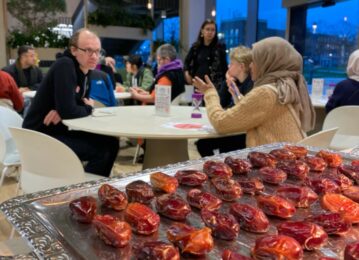There’s something special, and calming, about good conversation over a good meal. This is even truer for the Islamic community during the holy month of Ramadan. Mealtimes truly become community affairs at Iftaar (the meal at the end of the day, when Muslims breaks their fast), with mosques often opening their doors to dozens of families. If you’re eating at home, there’s also the common practice of sharing food with your neighbours to keep you connected.
As we entered Ramadan in 2024, we at KCESP wondered what would happen if you married this sense of connection with our pilot project for creating connection – and so we held The Hopes and Fears Lab: Iftaar Edition.
In March 2024, working with the brilliant events team at West Hub in the centre of the University of Cambridge’s new science district, we hosted an Iftaar meal for 40 people. People from all walks of life came through the doors, Muslims as well as non-Muslims, with an interest in the event. As the children settled in at our ‘curiosity stations’ the adults sat down with one of our five volunteer scientists – and, of course, a heaped plate of delicious food!



Our researchers were all incredible, and all working in different areas of discovery science; in no particular order, we had the following five superstars in this edition of The Hopes and Fears Lab :
- Nazneen Khan; researching climate change and its impact on women’s reproductive health. She has a particular interest and focus on Bangladesh, and you can read a little more about her work here.
- Shabnum Maqbool; researching materials that can be useful for solar cells and LEDs Her research focuses on designing more efficient materials for renewable energy generation to mitigate the climate crisis.
- Sheheryar Banuri – a behavioural economist that studies why people work, and what gets them motivated to achieve big things (he recently wrote a book called “The Decisive Mind” on this topic – check it out here!)
- Nadia Radzman – a researcher in plant peptide regulation and legume biology, with a focus on future food security and climate. Nadia was in the Cambridge Independent for her work, as well as the Guardian.
- Yaning Wu – researching how to mitigate potential side effects of blood donation. Blood donation is usually a very low risk activity, but sometimes averse affects can occur, and understanding who is at risk of these effects can help us prevent them.
- Florian Jaeckle – researching coeliac disease. Coeliac disease is not very easy to diagnose, so Florian is working on developing new machine learning software (a particular type of computer programme – think AI) to accurately diagnose coeliac disease. Florian was also present during our The Hopes and Fears Lab: AI edition (videos of that can be seen here) and we were delighted to have him back!
As a Muslim woman myself, it was brilliant to be able to facilitate this event. The atmosphere in the room was warm, curious and excited. These conversations about cutting edge science can often feel more fearful than hopeful, with a deep sense of distrust for science amongst the public (see e.g. this research on trust, or this paper about how genetic science is perceived amongst different groups of people), but something about the simple act of sharing a meal is deeply humanising.
Science is just a tool. It can be use as a benefit for mankind, if the scientist behind it hold on to the good morality and positive values
Iftaar Attendee

Our researchers were themselves majorly Muslim, and I think this may have played a part in breaking down that perceived hierarchy between our ‘publics’ here and our ‘scientists’. Ramadan itself is also a great leveller – many aspects of Islamic practice serve to remind us that we are all simply humans, equal in every way that matters. Ramadan is one of those things, since whether you are a scientist or not you will have spent the day hungry! The atmosphere of the event certainly reflected this – it felt like we simply had a room full of people, talking about their feelings, and our shared scientific future, over a meal.
The Hopes and Fears Lab and Iftaar certainly came together well, in my opinion. This event would not have been possible without the fantastic support of the events team at West Hub, who run a whole host of interesting things over the year. More about them here. Check back in Ramadan ‘25 – we may just be hosting another one of these!


